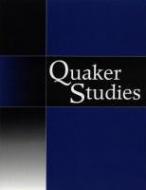
Abstract
This paper argues that Quakerism was an important influence on a number of eighteenth- and nineteenth-century American writers. Looking at the work of, amongst others, Charles Brockden Brown, Robert Montgomery Bird, Ralph Waldo Emerson and John Greenleaf Whittier, it demonstrates that both the stereotyped depiction of Quakers and the use of Quaker ideas, such as the inward light in literature of the period, helped writers tackle some of the paradoxes of democracy in a young nation. The perceived mystery of Quaker individualism is used in these texts first to dramatize anxiety over the formation of American 'character' as either fundamentally unique and unknowable or representative of the whole nation, and secondly for more constructive ends in order to create a language able to express unity in diversity.
Recommended Citation
Peacock, James
(2008)
"'What They Seek for is in Themselves': Quaker Language and Thought in Eighteenth- and Nineteenth-Century American Literature,"
Quaker Studies: Vol. 12:
Iss.
2, Article 4.
Available at:
https://digitalcommons.georgefox.edu/quakerstudies/vol12/iss2/4
